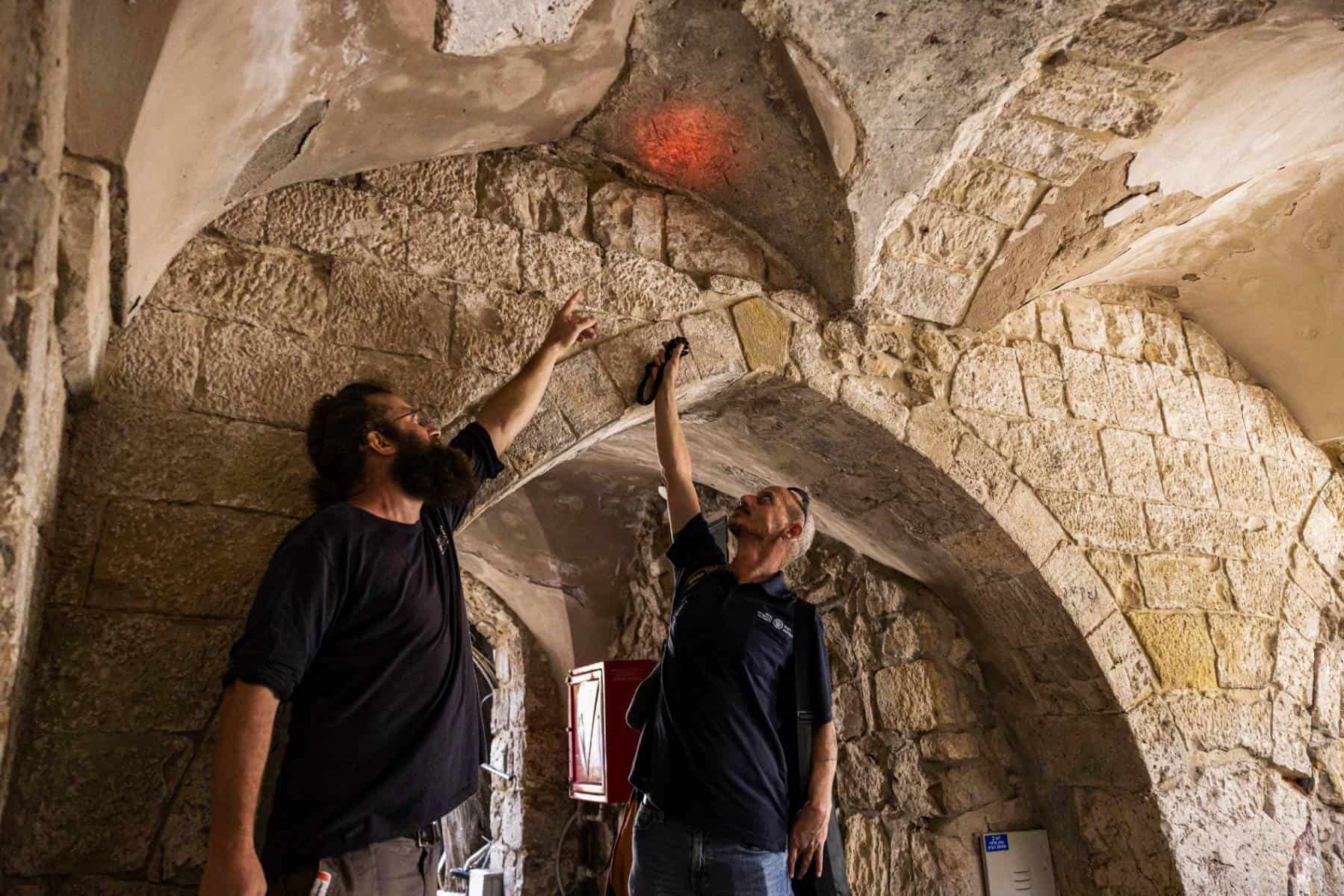Jerusalem—Graffiti with the name of a 15th-century Swiss knight has been discovered in Jerusalem, carved into the walls of a building where pilgrims stayed, the Israel Antiquities Authority said Thursday.
The knight Adrian von Bubenberg is believed to have visited the holy city in 1466, when researchers say he may have marked his name alongside his family emblem on a stone ceiling.
“The building served as a monastery and a hostel for the Western pilgrims, who left their mark on the walls,” said the leaders of the research, Michael Chernin and Shai Halevi, in a statement.
The team has uncovered more than 40 inscriptions on Mount Zion, adjacent to the Old City, which they attributed to Christian and Muslim pilgrims.
Von Bubenberg was renowned for his role in the 1476 Battle of Murten near the city of Bern, when the Swiss beat the Burgundian army led by Charles the Bold.
Doubt remains as to whether the knight himself was behind the graffiti, or if it is the work of his son who carried the same name.
Eli Escusido, director of the Israel Antiquities Authority, said the discovery creates a “fascinating picture” of the city’s past.
“The research carried out in Jerusalem embraces religions and cultures worldwide,” he said in a statement.
“Believers, pilgrims and visitors seeking to make contact with sanctified Jerusalem, left traces.”








